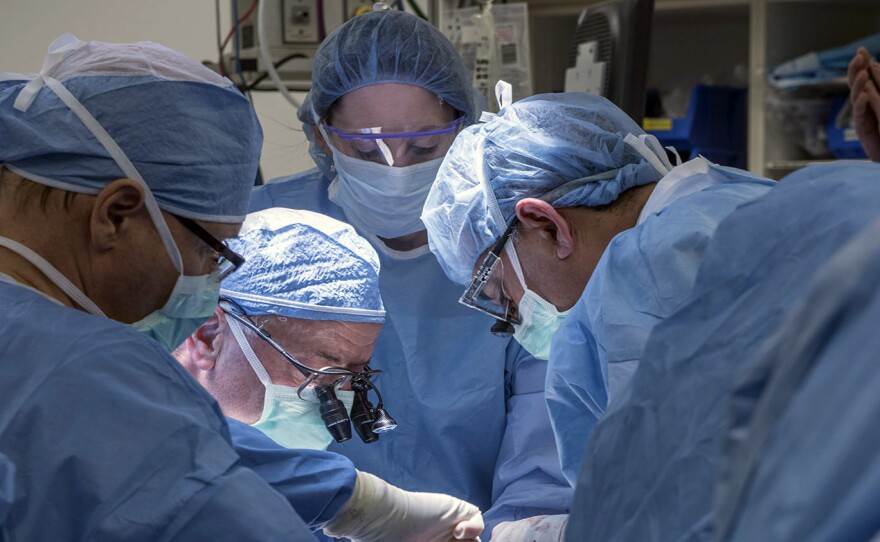The Cleveland Clinic says it has performed the first uterus transplant in the United States.
This opens up another possible path to parenthood besides surrogacy or adoption for U.S. women who do not have a uterus, or who have a uterus that does not function.
The transplant happened during a nine-hour-long surgery on a 26-year-old patient, who the clinic did not identify. The clinic says the patient is in stable condition and that the transplanted uterus came from a deceased donor.
This is a major step in the clinic's transplant study for women with Uterine Factor Infertility or UFI, meaning "they were born without a uterus, have lost their uterus, or have a uterus that no longer functions."
This is how the process goes from here, according to general information released by the clinic about their trial: They expect the transplanted uterus to take approximately one year to heal. Then, doctors will implant embryos one-by-one that were created using in vitro fertilization before the uterus transplant. The patient will be taking anti-rejection drugs throughout pregnancy.
And the clinic says it intends for uterus transplants to be temporary in order to "reduce long-term exposure to the medications."
"After 1-2 healthy babies are born, the anti-rejection drugs are stopped ... the transplanted uterus is either removed or allowed to disintegrate," the hospital says.
In Sweden, a woman who had a uterus transplant successfully gave birth for the first time in 2014. Since then, at least three other babies have been born in Sweden to mothers who have undergone the procedure, according to the Cleveland Clinic.
Some medical professionals have their doubts about whether this procedure is the best use of resources. Dr. Michael Green of Massachusetts General Hospital told NPR in 2012 that he "questions whether this kind of transplant is really necessary." Here's more:
"'Nobody needs a uterus to live, OK?' Green says. 'Nobody needs a hand or a face to live, in fairness. It's a quality-of-life issue. This is in that same category. So we've opened the door. We've stepped through it. And this is one of the next logical things that people might do.'He wonders whether health care dollars should be spent on uterine transplants when a woman who lacks a uterus can turn to a surrogate mother to provide her with a child — if she can afford it, that is."
But surrogacy is not always an option, the Cleveland Clinic argued in information about their clinical trial: "In the U.S., the surrogacy process can be legally complicated. In many other countries, surrogacy is highly restricted or even banned."
For some candidates, it's simply about wanting to experience pregnancy. Here's what one 26-year-old woman who the Cleveland Clinic was screening as a possible candidate told The New York Times in October:
"I crave that experience ... I want the morning sickness, the backaches, the feet swelling. I want to feel the baby move. That is something I've wanted for as long as I can remember."
Copyright 2016 NPR. To see more, visit http://www.npr.org/.






